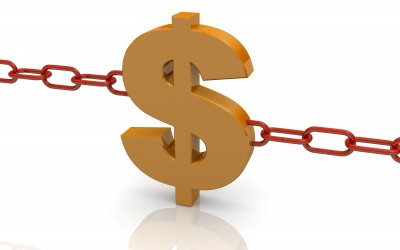Five Rules to Improve Your Financial Health
Even while setting personal financial goals is critical for securing a bright future, doing so may be difficult. Your grandparents’ “rules of thumb” won’t get you very far when it comes to financial health. Getting back on track with your financial objectives is easier when you follow these five criteria for better financial health.
1. Recognize the difference between what you really need and what you really want
Making wise choices when it comes to spending is an essential part of making smart financial decisions. The occasional happy hour cocktail or takeaway meal is fun, but it’s time to rethink how much money you’re spending on things that aren’t absolutely necessary.
It might be difficult to tell the difference between the two at times. Food, shelter, clothes, and healthcare are all necessities that may be met through a savings account. When it comes to saving money, 10% of your salary is a good starting point. Nevertheless, what happens when a necessity is also a desire? Having clothes is a must, but there is a significant price difference between the practical, low-cost options and the upscale, designer options.
As a general guideline, we recommend that you prioritize the most necessary items in your personal budget. Consider how much money you have left over and know that it doesn’t have to be spent on your desires. While it’s important to reward yourself for your efforts, you should also set aside a portion of your earnings for the future. A sound personal budget relies on striking a balance between these two competing priorities at all times.
2. Make a disaster preparedness plan
It’s certain that you’ll run into problems and mishaps along the way in your financial life. It’s critical that you grasp this and respond appropriately. Because of an unexpected expense, you may find yourself needing to take out more money from your savings account than you had anticipated.
The standard recommendation is to keep six months’ worth of expenses stashed away. Typical uses for this safety net include auto maintenance, house improvements, and medical expenses. Events such as this necessitate financial planning ahead of time. The way we respond to things once they’ve happened is just as crucial.
Create an emergency fund in advance of the need for it by holding yourself accountable and setting goals. Additionally, a financial planner can assist you in establishing savings objectives that are feasible and sustainable for your lifestyle.
3. Begin saving early
In the long run, early contributions to retirement plans and savings accounts make all the difference.
Your savings will earn you money just by remaining in your bank account for a long period of time. By saving in the early stages of your life, you have a better chance of reaping the benefits. There’s the power of compound interest to increase the amount of money saved for retirement when accounts are opened when people are still young.
Savings in a traditional savings account accrue interest. A compounding interest account still pays interest on the original money, but it also pays interest on the interest you’ve already earned. When you start saving early, you have more time to take advantage of compound interest’s snowball impact.
In order to maximize your retirement savings, you might start with a small amount and grow it over time. Your funds will grow as you become older since you started saving early on.
Early retirement preparation can make it simpler to enjoy your golden years when the time comes.
4. Consider lifestyle inflation in your budget
The more experience you have under your belt, the more money you may expect to make. You’ll start spending more money as soon as you start making more of it. As people improve in their jobs and start making more money, they tend to spend more as a result of this direct correlation. Savings potential increases when the cost of living is well managed.
Lifestyle inflation isn’t a terrible thing, but it’s necessary to also inflate your other financial goals as you increase spending. Increasing your expenditures isn’t the only solution. Increase your retirement and savings contributions by increasing your standard of living. Put money aside for a rainy day. Keep your lifestyle inflation in check by keeping track of your financial goals. You can use the advice of a financial advisor to accomplish this goal!
5. Make a few independent calculations
When it comes to managing one’s own money, taking some time out to perform some calculations may be really advantageous. It’s not as difficult as some people assume, and it helps you prepare for the future by giving you a better grasp of your income and goals.
Your net worth is the most important metric to keep an eye out for. You may get a good idea of your net worth by making a list of all of your assets and subtracting all of your debts. Start by listing all of your assets and liabilities (what you own and what you owe) and subtracting the liabilities from your assets to arrive at your net worth. You may use it as a gauge of your current financial situation.
Because net worth changes from year to year, it’s best to do this exercise on an annual basis. A smart way to keep tabs on your money is to keep a budget. This way, you can celebrate your victories and devise strategies for areas that might use them better.
Conclusion
If you don’t know where to begin, we understand that having a conversation about personal finances can be stressful and awkward. It’s difficult to set aside time to review your expenditures or stop bad money habits. However, we suggest that you take these suggestions to heart and start making a difference!






